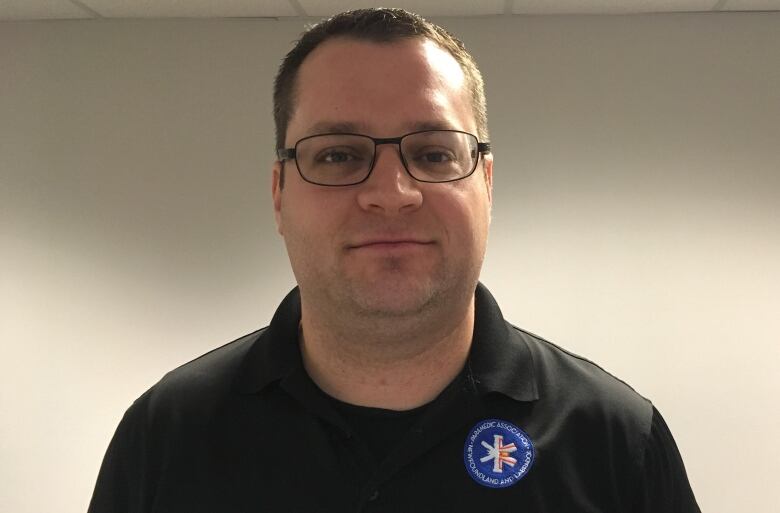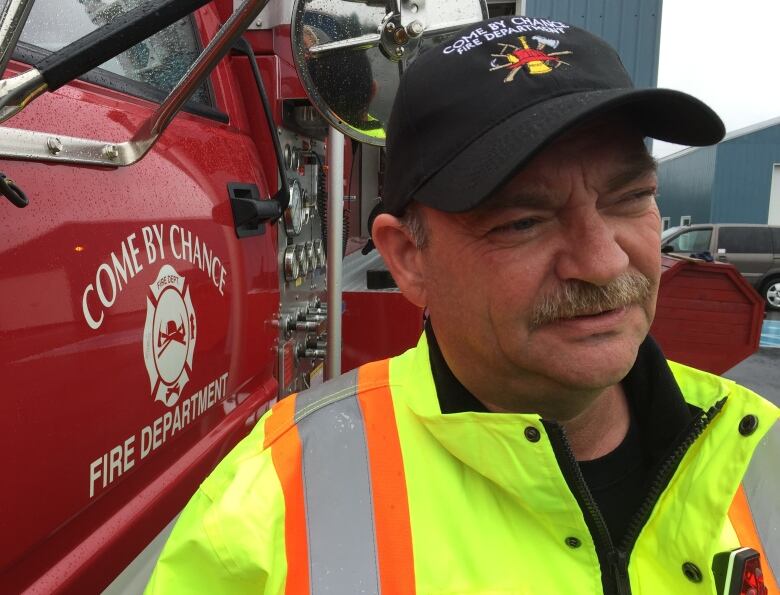N.L. emergency services scramble to cover Omicron-related worker shortages
'If you need help, call. Someone is going to come,' says one paramedic

Newfoundland and Labrador emergency workers and volunteers are scrambling to pick up the slack as numerous staff are forced into isolation due to COVID-19 exposures or positive test results.
Brad Forward, a paramedic in rural Newfoundland, said close to 50 per cent of his co-workers were out due to COVID-19 at one point.
"The workload kind of fell on to those who were still standing," said Forward in an interview with CBC News. "With the increased case numbers going through the roof, the fear levels and the stress levels were rising pretty quickly."
The rapidly spreading Omicron variant has meant hundreds of Newfoundland and Labrador health-care workers are off inisolation at a time when the system is already strained.
While other events may be cancelled, medical emergencies never stop, said Forward.
"We're almost to the point now where, you know, we're almost having to try to be in two places at once. Really, the only way we can really cope is to jump into the work," he said. "That's all we can do until we get a chance to stop."
Forward said ambulance services are still available to those who need them though they may take longer than usual because of the layers of personal protective equipment that they need to put on.
"If you need help, call. Someone is going to come."
Jayne Denty of Glovertown says the race to meet rapidly shifting protocols is hurting staff morale, as well as response times.
"It's had a big impact mentally and physically on us," she says. "It's difficult to maintain your passion and to continue on working."
Denty said a paramedic shortage that predated the pandemic has only been worsened by the ongoing health crisis.
"So we're working a lot of overtime doing a lot of on-call," she said. "A lot of people are away from their families or putting their families on hold during the day. So it's been difficult."
'An extra weight'
CBC News has asked the regional health authorities for the number of paramedics currently self-isolating, though with fluctuating data, that number can be hard to pinpoint.
Rodney Gaudet, the president of the Paramedics Association of Newfoundland and Labrador, said he doesn't have the exact number.

He said isolation timelines vary depending on whether a person is off because they're symptomatic or they're waiting for test results, which are backed up. Gaudet said it's all hands on deck for N.L. paramedics right now.
"Typically, any time someone is off isolating, other people within that service or even neighbouring services have been jumping in to help out to support," he said.
Gaudet said two years of a pandemic has made an already stressful job more difficult.
"Any time there's another wave that comes on, it's just an extra weight on our shoulders," he said.
Since they're responding to emergencies among the general public, paramedics don protective equipment, and patients are screened for COVID-19 symptoms. Gaudet said it's important to be honest when answering those questions so paramedics can sufficiently protect themselves.
Fire departments, RNChave contingency plans in place
Omicron-induced isolation is affecting volunteer fire departments too, said the president of the Newfoundland and Labrador Association of Fire Services on Thursday.
Duane Antle, who is also the fire chief in the town of Come By Chance, said volunteers have been conducting training and fire prevention activities online. Antle said firefighter shortages are a real worry, and he's already heard from one fire hall that had to call in help from a neighbouring community.

"It does leave you in a pretty bad situation as a fire chief because you don't know if you have enough people that are going to be able to respond."
However, Antle said fire halls have contingency plans to deal with volunteer shortages during this wave, including making a list of on-call volunteers.
"A lot of planning has been done to ensure that if they need our fire departments, right across this province, to attend the scene for them and be there to help them, they're going to get the help that they need."
Royal Newfoundland Constabulary Const. James Cadigan said the RNC also has contingency plans in the event that significant number of officers need to self-isolate, including reassigning officers to different roles.
He said some front-line officers are in isolation due to COVID-19, but wouldn't reveal how many.
"This kind of information is really changing daily and for security reasons, we won't be disclosing that information," he said.
He said the RNC has a COVID-19 response team that has developed protocols to mitigate risk.
Last week, N.L. Public Health shortened COVID-19 isolation periods to reflectthe shorter incubation period of the dominant Omicron variant and evidence suggesting that peoplewho are fully vaccinated shed the virus for a shorter period of time.
Chief Medical Officer of Health Dr. Janice Fitzgerald said the high number of health-care workers in isolation also played a role in the decision to change isolation guidelines.
"There's no doubt this had a major impact on the provision of essential services, and we do have to keep that in mind as well and take that into consideration when we're making these kinds of decisions, as everywhere else has had to."












_(720p).jpg)


 OFFICIAL HD MUSIC VIDEO.jpg)
.jpg)



























































































